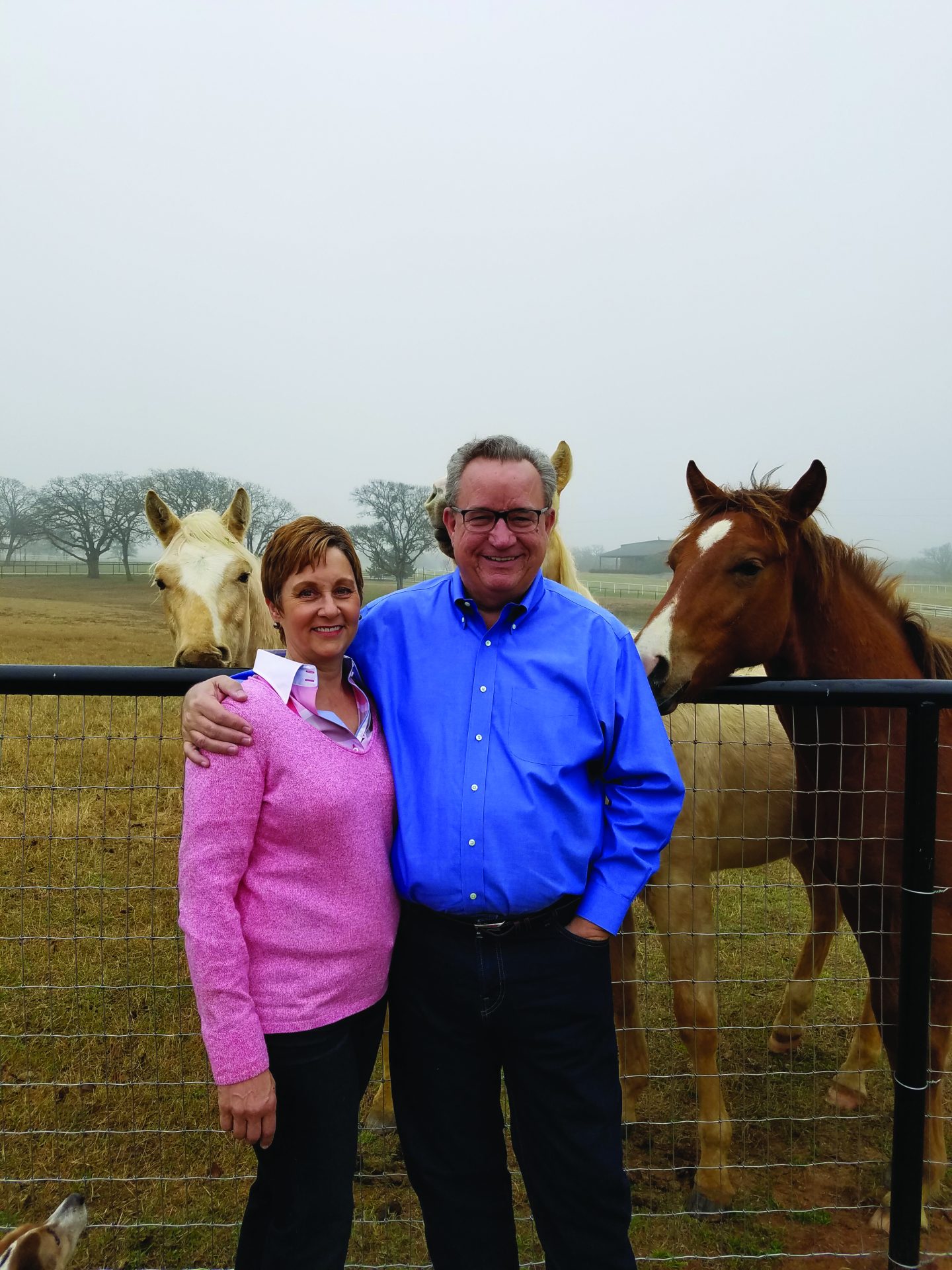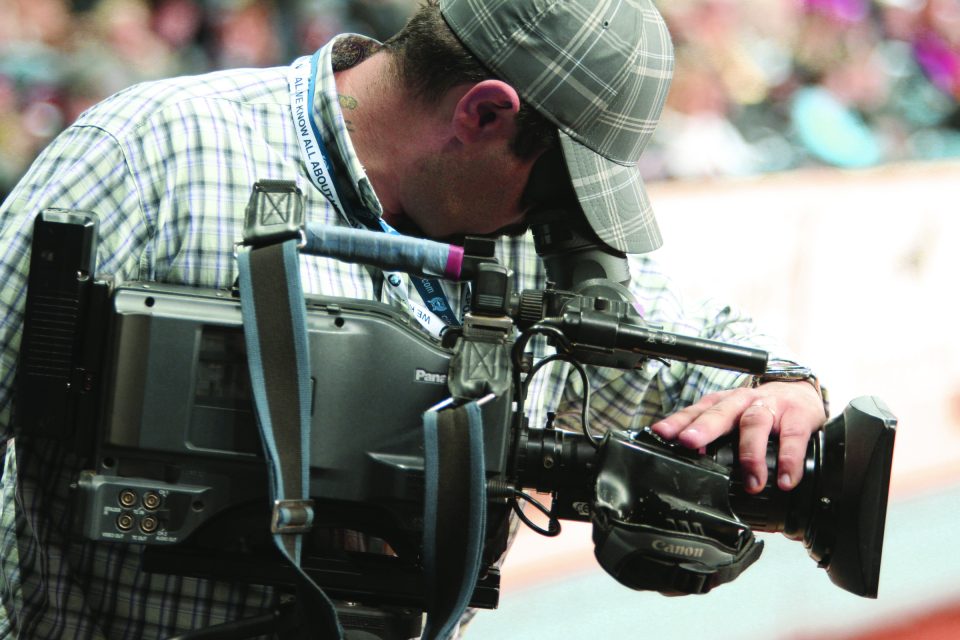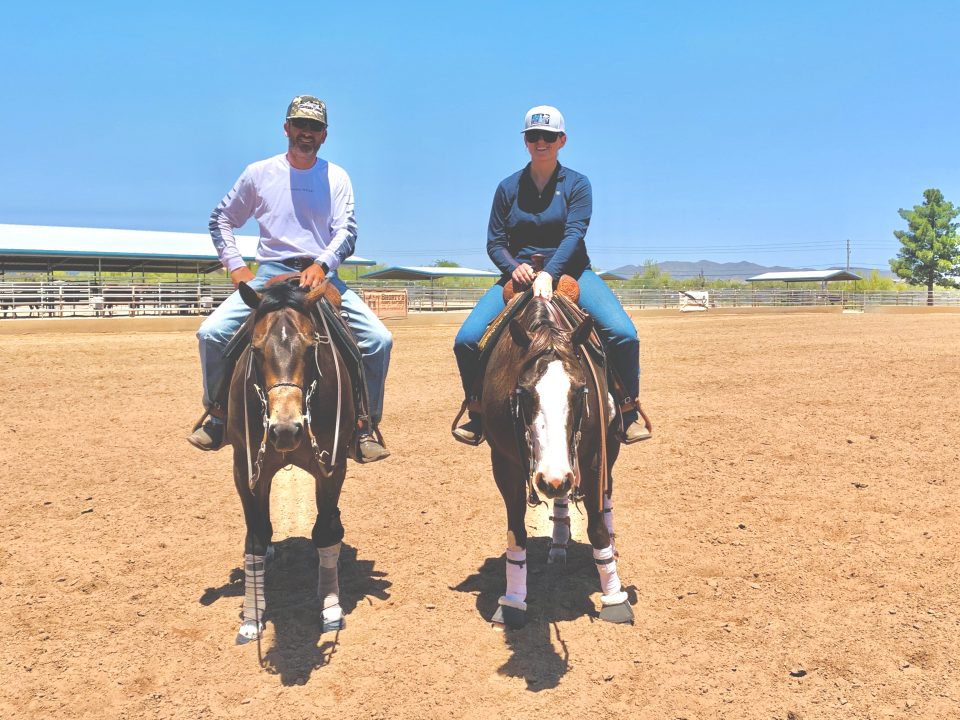The owner of Toyon Ranch built his career from the ground up. This Q&A highlights how his experiences can help you improve your business practices.
Interview by Jennifer Paulson

You might know John Tague for the ranch he and his wife, Nancy, own—Toyon Ranch. Their operation, based in Pilot Point, Texas, focuses on breeding and bringing to market the highest-quality reining prospects by pairing a diverse and proven band of broodmares with the world’s leading stallions.
As notable as Toyon Ranch is, the Tagues’ involvement with horses didn’t begin in reining. Both Tague and his wife started in hunter/jumpers at an early age—8 or 9 years old. Tague showed extensively through his high school years as a working student for a leading professional. During these years from his early teens he was on the road virtually full-time, doing whatever needed to be done. A move to Texas put the couple in the heart of reining country, where they rekindled an interest in Quarter Horses and discovered reining. They’re now deeply involved in the sport and supporting many initiatives through NRHA as a corporate partner.
Professionally, Tague built his career in the airline business, eventually becoming the president of United Airlines. He later moved on to become the CEO of Hertz global. He currently focuses on the ranch, but sits on corporate boards and acts as an advisor major investors and corporations.
Combining Tague’s diverse horse experience and his business expertise gives him a unique perspective on the business side of reining. We sat down with him to ask a few questions that can help NRHA Professionals strengthen their businesses.
Pro Trainer: What can NRHA Professionals learn from the professionals on the hunter/jumper side of the industry?
John Tague: Many nonprofessional riders and owners are exiting the hunter/jumper side as they mature and look for a horse sport they can feel more comfortable in. There’s opportunity to bring these people into the reining world, but we must be wary about becoming what they’re leaving. There are positives to hunter/jumpers, given the maturity of the sport and the scale of that business. But what draws them to reining will be the focus on the total community, the value system, and the Western culture. The reining community can be a major point of distinction that NRHA Professionals can emphasize.
With this influx of new customers, you must remember that you never know where your next customer is coming from. Whether it’s changing life circumstances, a new passion for reining, or another scenario that sends a customer your way, be open-minded about building relationships based on where that customer might go versus where they might be at that point in time.
PT: As an owner, what do you look for when hiring an NRHA Professional?
JT: I value candor in all my professional relationships—honesty and candor. Even if you think I don’t want to hear it, tell me. I value input.
A relationship between a professional and an owner needs an extreme degree of transparency, honesty, and candor to avoid any perception that you’re not on the same team as your client. Just like horses, not all customers are what you hope they’d be, but they can surprise you. The genuine nature of this sport, even though it is also a business, builds passion and long-term commitment.
PT: Training barns can have high turnover. What’s your advice for hiring and keeping a team?
JT: My professional situation of hiring and sustaining associates is very different than as a breeder or that of an NRHA Professional. I had 90,000 team members versus eight to 10. But the values are the same. As owners, we value stability. We don’t want to see high turnover. We want to find great people who are positive in the work environment and reward them in a way that reduces turnover. Having a team for the long term is not only a reflection of your business’ values, but it lowers costs. It costs money to lose a high-performing team member and threatens your customer’s experience.
The way to keep them is to treat everyone respectfully. There can be a culture of “I wasn’t given respect or praised for a good job when I was coming up, so I’m not going to either.” Think about treating your assistants, grooms, and other employees with the respect you wish you’d been given when you were coming up in the business.
Instead, build a culture where everyone works hard, shows commitment, and grows their talent. Foster an environment with honesty, loyalty, and education.
I will say we need to develop young riders to become the next generation of professionals. Growing talent and giving opportunities to young riders is essential. The people on the professional track in the hunter/jumper world are very clear by 18 or 19 years old. They’re in the show pen 300 times a year for 10 years, the best are often working students. They come into their careers very ready and as known products with deep experience and broad knowledge in areas such as barn management. We haven’t manufactured that sort of pipeline, and I see opportunities to do more of that.
It’s essential to find a way to give opportunities that were given to you. Take an equity stake in a young trainer’s success.
PT: What other roles do youth riders play in the success of the industry and potentially a professional’s business?
JT: If you can really grow youth participation and enthusiasm, you can grow the base somewhat. But more importantly, the young riders who leave the sport to pursue careers and family will come back when they have the resources—both time and money. If they get hooked as youths in a strong, supportive, honest community, they’ll come back. And they’ll bring their kids.
It comes down to looking past the one-year cycle. Look at the long game. What’s good for the industry is good for all of us, so let’s work together to build a strong industry.
PT: What about customer service—what advice can you provide in that area?
JT: If a new customer is coming from other disciplines, they expect exceptional horse care, barn management, and business practices. They want to see that there are systems in place that work, and the horse always comes first.
For any customer, the relationship requires an ongoing dialog about how to manage the significant emotional and financial investment these clients make. Expectations of standards of care will continue to increase in importance. People are making bigger and bigger investments to compete, so their expectations are higher.
As popularity of the sport grows, owners will expect higher and higher levels of business management. Looking at the hunter/jumper world, it’s not unusual for a barn to take 50 horses to a show. And those horses will show 200 to 250 in a week. The operation runs like a slickly oiled machine, and every customer is well taken care of.
But, that said, the Western industry, to its core, is genuine. The realness of the Western and ranching heritage is something we don’t want to lose. The key is to find ways to have great business management, excellent horse care, and still keep it fun and maintain the Western heritage.
PT: We always want to help NRHA Professionals plan for the future—both in terms of retirement, medical absences, and other situations that could keep them from conducting “business as usual.” What advice and perspective can you share to help with that sort of preparation and planning?
JT: One of the many ways we and others have identified as a viable way to help professionals is by aggressively supporting the Reining Horse Foundation. Building education and support around the crisis fund is essential. We’re thrilled to see the NRHA Professionals joining us in the cause in multiple ways. They’ve approved an opt-out donation with their NRHA Professional membership, they’ve implemented their own fundraisers (e.g., the dummy ropings at the NRBC and NRHA Derby). We’re thrilled about that.
Personally, for these professionals, it comes down to the first time you have an extra nickel, insure against risk. The Western community has a wonderful old-fashioned values system where everyone comes together and helps when someone is hurt. But that can’t support long-term injuries and certainly can’t pay for you to retire when time comes. It’s not sustainable.
There are a few ways trainers can create opportunities to accumulate wealth. It could be purchasing real estate that’s not part of your business, purchasing property for your business that can be used for multiple purposes or will have high value when you sell, buying and selling horses, and owning breeding stock. There’s a comfort level in putting money where you know it best.
The key is to diversify. Be broad. Recognize that if you’re only going to focus on riding open aged-event horses, you won’t have 10 non pro riders to coach when you can’t ride anymore, whether it’s because you’ve retired or a 2-year-old fell on you and broke your leg. Diversify to plan for different phases of your life. We all know professionals who’ve accomplished this and paved the way for younger trainers. They had a plan and were always plotting for the next move. Don’t mistakenly suggest they were just lucky. Learn from what they did to plan and make tough decisions over 30 or 40 years to accumulate wealth and value that will give them a lifestyle when they retire.



